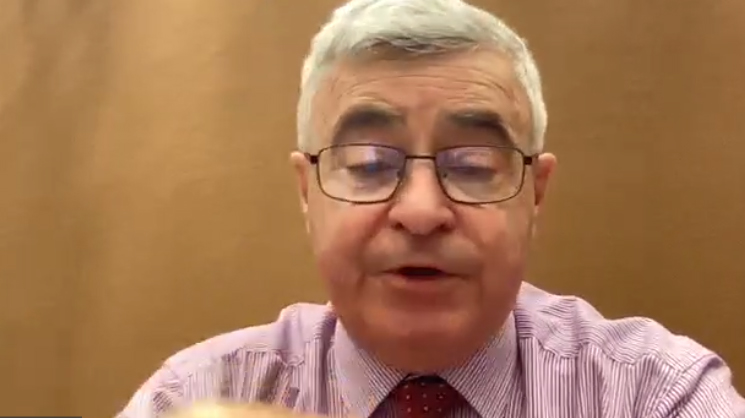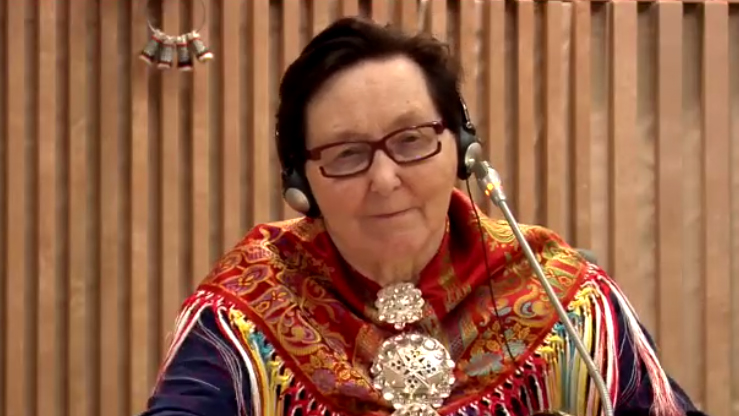”Don’t tell me that I don’t remember”
Funktionshinder
21 feb 2022
”How many of us can talk about our health and pain in another language with more words than just a short ’okey’?” That rethorical question was posed by Merja Pieski from the Sami social and healthcare organisation SamiSoster spotlighting the fact that most services for indigenous people with dementia or disabilities are only available in the majority language.
The question was followed by two days of knowledge exchange on human rights, intersectionality and a focus on the importance of language and cultural identity. The discussions took place during the webinar Indigenous peoples: language, culture, and life cycle which was sent live from the Sami parliament in Finnish Inare.
– Equal and safe health for everyone and a sustainable society where no one is left behind is an aim of the Nordic cooperation, said Paula Lehtomäki, General Secretary of the Nordic Council of Ministers.
The importance of language and culture
When a person has a cognitive disability, language and culture becomes even more important. If the service sector doesn’t incorporate these perspectives it may effect the care and service provided.
Margaretha Uttjek, PhD and Associate Professor at Umeå University have done research in the field and gave exemples of persons being misunderstood in contact with the health services because of both lingual and cultural references, resulting in incorrect assessments or inadecate services.
Memories of summers on the mountain slope
Merja Pieski, from SamiSoster gave voice to the Sami population by adding examples of cultural reference that can be used to help a Sami person to remember:
– The summerstay has a more important place than in the dominant culture. The better we understand the life story of the person with a memory disease the more safe will he or she feel.
Merja Pieski also voices the frustration that a person with beginning dementia may feel when focus is on the inability to remember, instead of supporting existing memories.
– Don’t tell me that I don’t remember, that only makes me fell shame for losing my memory, said Merja Pieski.
Intersectionality explained

– No one is born with just one identity. One person may experience multiple sets of privilegies. This is a cumulative effect, it’s not additive, said Gerard Quinn, UN Special Rapporteur on the rights of persons with disabilities.
He stressed the importance to talk about human rights in a broader sense than just the legal, where a case can be won or lost, calling the juridical view reactive. He pushed for a more progressive approach.
– The real value of intersectionality is that we need to set new questions. We need better ways of exploring differences, said Gerard Quinn.
But the head of the Greeland disability organisation NIIK, Cecilie Marie Jakobsen, talked from a different perspective.
– We need anti discrimination laws in Greenland, she said and put the light on the fact that Greenland still lacks legislation regarding discrimination.
Different situation in Greeland
There is another difference when it comes to Greenland. The indigenous population is the majority, which meens that most people in the service sector speak the same language as the persons they care for. Still the services are not always culturally sensitive.
– We need to offer Greenlandish food and adjust memory testing to using cultural things that the person with dementia has an understanding of, said Tenna Jensen, Associate Professor, University of Copenhagen.
Dementia is also a relatively new diagnose in Greeland, which means that relatives may lack deeper knowledge about it.
Call for budget and action
 Ristenrauna Magga, the Executive Director of SámiSoster ended the seminar by reminding us of human rights from a personal perspective.
Ristenrauna Magga, the Executive Director of SámiSoster ended the seminar by reminding us of human rights from a personal perspective.
– We don’t want to hear bad words about us, from the majority. Disabled people from an indigenous group do have the same rights as everyone else!
Magga also called for action and stressed the need to get this into budgets.
– Dreams do not come true without concrete action, she concluded.

